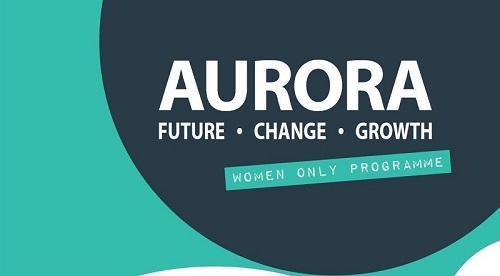What is a leader?
Taking part in Aurora helped me gain further awareness of the skills, attributes and capabilities needed to lead as a person of colour (POC) in higher education. For example, it made me question the extent to which my own concept of leadership has been influenced by concepts of leadership based on the white, male, straight leader archetype, and whether artificially adopting this style was serving the vision of transformation of education I strongly advocate for the benefit of students. Professor Nona McDuff explains that leadership programmes for Black, Asian and minority ethnic staff at Kingston University is not about changing or fixing them, and this is precisely the main takeaway for me from taking part in Aurora.
During the process of attending Advance HE’s Aurora webinars, action learning sets and having a mentor, I realised that taking agency of my leadership development will allow me to attain the vision of leader I aspire to be. However, I also became very conscious about the role that whiteness in academia has had and will continue to have on representations of leadership. I learned that I was not faulty or lacked anything, but that I am part of a system that was built on and continues to build structures to perpetuate racial inequalities.
Leadership in practice
The six months of attending Aurora helped me reflect on my previous roles in leading change in the context of learning and teaching practice as an educational developer, and to articulate the two main values that guide me when encountering leadership challenges: innovation and diversity.
Innovation
As a leader, I highly value innovation to solve complex problems and scaling up change. I embodied this in the implementation of a Champions Programme in collaboration with Microsoft and colleagues from across faculties.
It was highly satisfactory for me to bring a solution to the highly complex challenge of upscaling digital capabilities in academic staff with my expertise in communities of practice for educational change, or as a Kezar, Gehrke & Bernstein-Sierra (2018), I created a community of transformation that supported colleagues to transition to online teaching during the emergency period of the pandemic.
Diversity
I also had the privilege of taking leadership responsibilities in my role as a senior consultant in social learning spaces in a project for British Council Peru. One of my core values is to bring and highlight diversity in education.
In this project, I negotiated the excellent expertise in online pedagogy of a British university and the localised pedagogical and cultural practices of Peruvian academics.
Tips for non-traditional leaders in HE
Upon reflection of my leadership style, values and practice, and the invaluable experience of Aurora with its myriad of skills training, insightful discussion, and fantastic guest speakers, I can offer the following three tips to lead as a POC:
- Purpose: Having a sense of purpose in what you do and why you do it will serve you as a compass and help you recover from the inevitable setbacks you will encounter. This, I feel, is particularly relevant for POC as we often face subtle and not so subtle institutional messages of whose voices get to be heard.
- Integrity: I am deeply interested by the concept and practice of integrity in organisational contexts. A crucial but very often abused word which we have devoid of value (not because we do not believe in it, but because we would like to see it operationalised more). It is tempting to play ‘the game’ to serve your own interests, but I have often found that the more leaders adhere to their values, truth and vision, the more people will follow.
- Collaboration: Do not underestimate the value and importance of collaboration and teamwork. Find your allies as this will help you counteract the perception that you are not a team player when you lead. Women are often expected to be ‘modest, helpful, communal and team players’ (Williams & Multhaup, 2018), and when they don’t behave according to this expectation, they may face criticism that perhaps a male colleague will not receive for exactly the same behaviour. Remind yourself that you cannot control people’s perceptions related to your gender or race, and that you can only control your actions and reactions. Hold ‘excellence’ as a core professional value and consciously and consistently shown your goodwill and ‘benevolence’ to prevent and overcome incidents of destructive criticism.
What are your top three tips as a leader?
Dr Monica Chavez is an educational developer and social learning consultant. She is interested in building community, belonging and success for students and staff in educational institutions. She is the co-facilitator of a national virtual community of practice on anti-racism and learning technology.

Start your own leadership journey with Aurora. Find out more